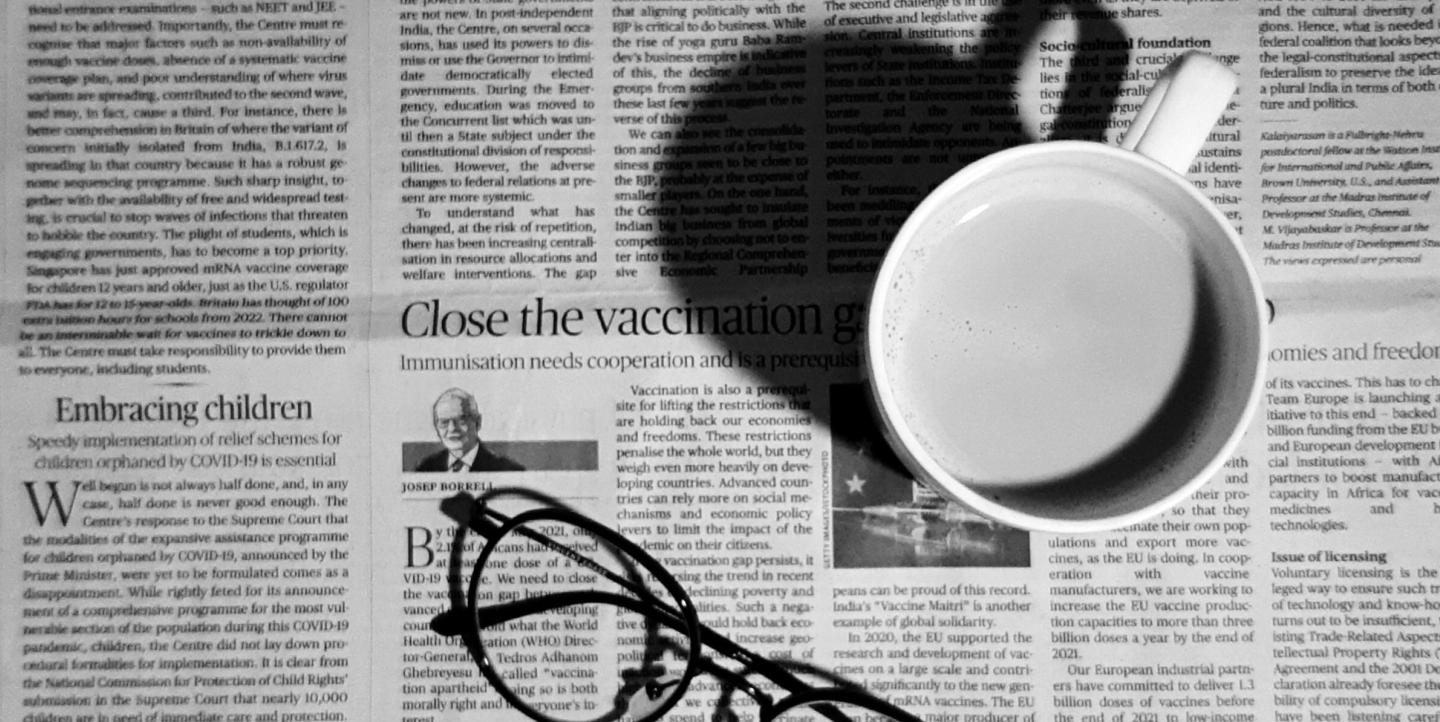For many years, politicians, academics and journalists have said that disinformation affects Latino communities much more than other segments of the U.S. population. But why is this the case?
The primary answer is fairly simple: in the U.S., Latino communities often don’t have access to reliable information in Spanish, which is a much-needed resource for many community members.
Quality Spanish-language journalism in the U.S. is a scarce, underfunded commodity. Disinformers take advantage of this and the resulting gaps in information: they spread false or misleading content that either undermines democratic institutions or negatively affects information on topics such as health, immigration, voting rights, and more. The perpetrators seek to enrich and empower themselves through these efforts.
When I say quality journalism, I’m referring to content that is well-researched, addresses issues relevant to the impacted groups, such as Latino communities, and is presented in formats that are appropriate for these communities, in the channels they use.
Latinos, the largest minority group in the U.S, are a difficult collective to define, comprising groups of people from diverse backgrounds with ties to dozens of countries. At the same time, they have traits that contribute to a common identity.
After English, Spanish is the most widely spoken language in the U.S., with more than 41 million people who speak it regularly at home, according to the U.S. Census Bureau. That is nearly 12 times more people than speak Chinese languages, the next most-spoken in the country. The U.S. is the fifth largest Spanish-speaking country in the world, behind only Mexico, Colombia, Argentina and Spain.
The importance that U.S. society places on Spanish, however, does not correspond proportionally to the large number of people who speak it. Public and private institutions, as well as media organizations, often do not give Spanish-speakers the attention they deserve – including information in Spanish.
Against this backdrop, disinformers target Latino communities with strategically tailored disinformation narratives. They take into account the social media these communities use, the ways they communicate and connect online among themselves in the U.S. and with their families and friends abroad, the issues they are most concerned about, their fears, and their distrust of certain institutions. Meanwhile, the responses to try to curb these narratives have been scattered and insufficient so far.
Combating false information in Spanish in the U.S. is an uphill battle. The ways in which mis- and disinformation adapt to target the U.S. Latino population are not entirely clear, and the volume of false content outpaces the production of reliable content in Spanish where it is needed. The number of media outlets currently fact-checking in Spanish or reporting specifically for Latino communities does not currently meet the demand from these populations.
This is precisely why, in April 2022, Chequeado and Maldita launched Factchequeado, a collaborative initiative to unite efforts against Spanish-language disinformation in the U.S. Our community is made up of almost 50 media partners working together to date, in 19 states and Puerto Rico.
What issues both lack quality information around them, and are most featured in disinformation narratives?
To learn more about the issues that most affect U.S. Latino communities, we conducted an initial study at Factchequeado that yielded interesting results. We consulted a group of journalists who are part of the community of Factchequeado media partners, and asked them about the information gaps they have noticed in their own Latino communities and are trying to correct. We wanted to analyze the views and reflections of those on the front lines of the battle against mis- and disinformation directed at Latino communities in the U.S.
The conclusion? There are certain issues, such as immigration processes, that are particularly problematic for U.S. Latino communities, in a two-pronged way: there is both a lot of mis- and disinformation and, at the same time, a lack of reliable information.
The research also brought to light language barrier difficulties. Many Latinos do not feel comfortable consulting reliable information in English and cannot find an equivalent in Spanish. In addition, instant messaging apps, such as WhatsApp, are an entry point for mis- and disinformation in Spanish to make its way to these U.S. Spanish speakers from their countries of origin.
The questionnaire we provided our media partners asked them about eight main topics where previous studies have detected mis- and disinformation or information gaps in U.S. Latino communities: COVID-19, health issues, immigration processes and procedures, political issues, voting, climate change, feminism and gender policies, and LGBTQ+ rights.
For each of these topics, we asked participants to assess the extent to which reliable information is available and how much mis- and disinformation they had detected. Participants scored each of the main topics on a scale from 1 to 5, with 1 meaning it’s not a topic that’s an issue for their community and 5 signifying that it’s a huge problem.
Findings
One of our immediate findings was that all eight of these topics both lack reliable information and have a considerable amount of disinformation circulating around them. The average score given by our respondents across the topics was 3.71 out of 5 in terms of a lack of rigorous information, and 3.78 out of 5 regarding the presence of false information.
One issue, in particular, stood out above the rest: immigration. It ranked the highest, a 4 out of 5, for both a lack of reliable information and the presence of false information about it. Throughout the responses, there were repeated references to the problems created by the dearth of information and false content alike.
Journalists who participated in the study perceived that the lack of information on climate change was not as great as with other topics, and that there was also less false information about it. Still, it scored 3.43 and 3.31 out of 5, respectively: information gaps and disinformation around climate change indeed exist, the situation is just not as dire as with the other topics.
Participants also ranked both COVID-19 and politics a 4 out of 5 in terms of amounts of false information, respectively.
When we look at information gaps, the results for LGTBQ+ rights and COVID-19 illustrate important differences. LGTBQ+ rights scores high for a large information gap, and lower compared with other topics for mis- and disinformation around it. The opposite is true for COVID-19, which ranked high in terms of the volume of false information on the subject and lower for a lack of reliable information.
The majority of participants believe that mis- and disinformation in Spanish is on the rise, and most respondents think immigration is the topic around which false information is increasing the most. Prior to our study, the subject of immigration already topped previous research rankings of the most worrying issues related to mis- and disinformation.
One respondent to our questionnaire pointed out that 2024 is an election year in both the U.S. and Mexico. They predicted that mis- and disinformation will be amplified because of this, especially regarding immigration between the two countries and immigrants’ voting rights.
Some journalists who responded to our questionnaire also perceived that political mis- and disinformation is on the rise, while health-related mis- and disinformation is on the decline. One participant put it this way: "Vaccine mis- and disinformation is becoming less and less common, and mis- and disinformation related to 'anti-woke' politics are on the rise."
Still other participants pointed out that mis- and disinformation is increasing on all issues.
This is just the first study we’ve conducted at Factchequeado to gain a better understanding of how mis- and disinformation targets Latino, Spanish-speaking communities living in the U.S. There will be more research to come.
If you are a reporter, editor or owner of a media outlet that serves Latinos in the United States, contact us and join our community. If you are an academic and want to do research with our data and content, we look forward to hearing from you as well.
Main image by Ashni on Unsplash.
This article was originally published by IJNet in Spanish. It was translated to English by journalist Natalie Van Hoozer.


